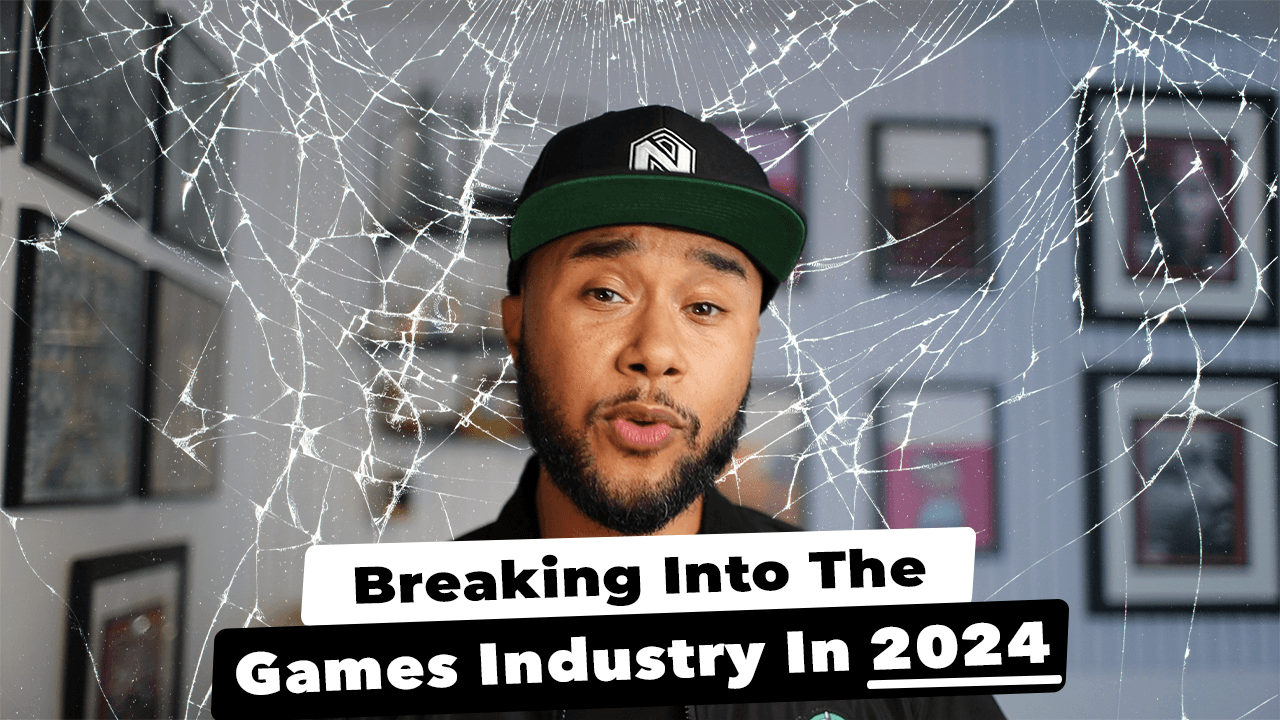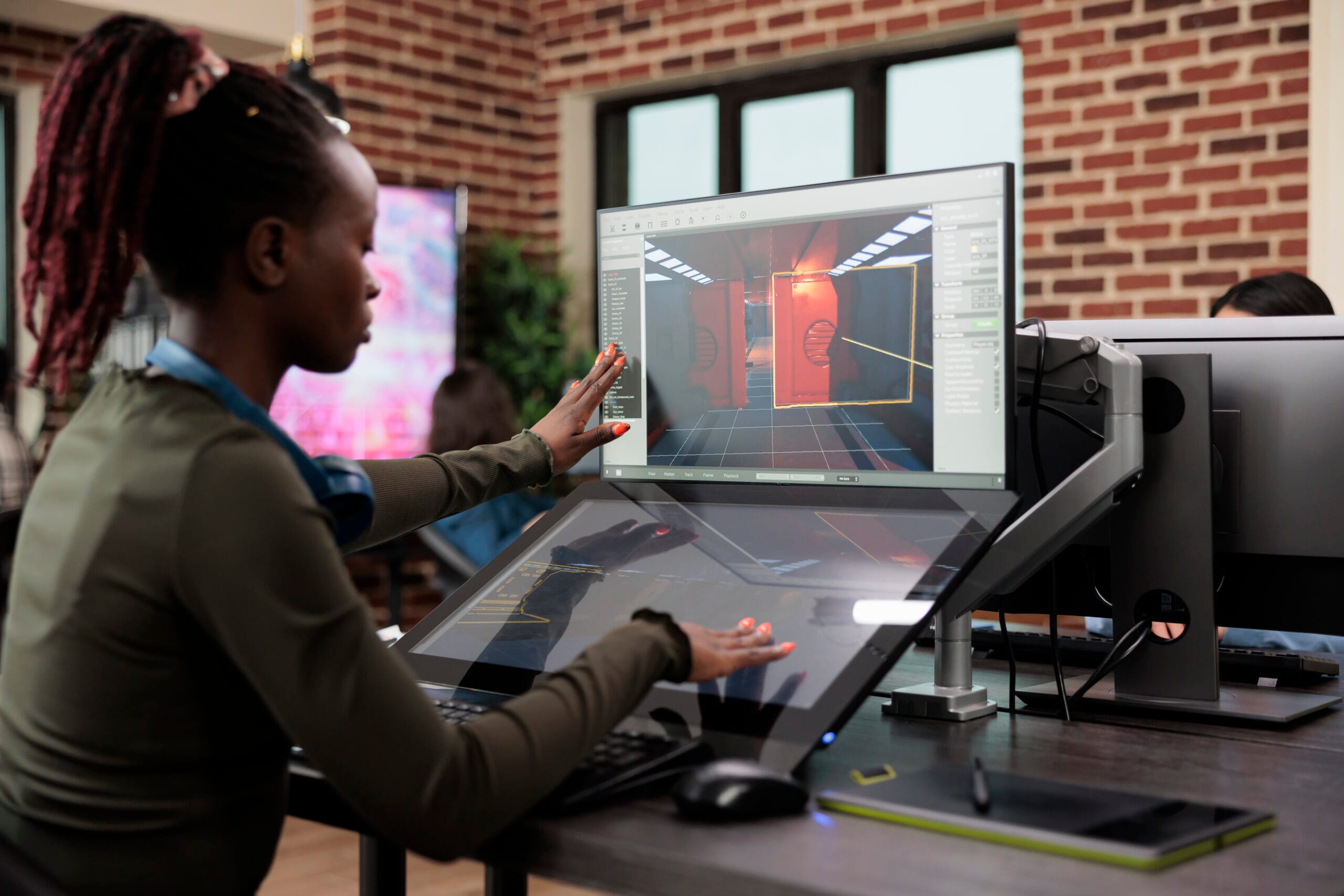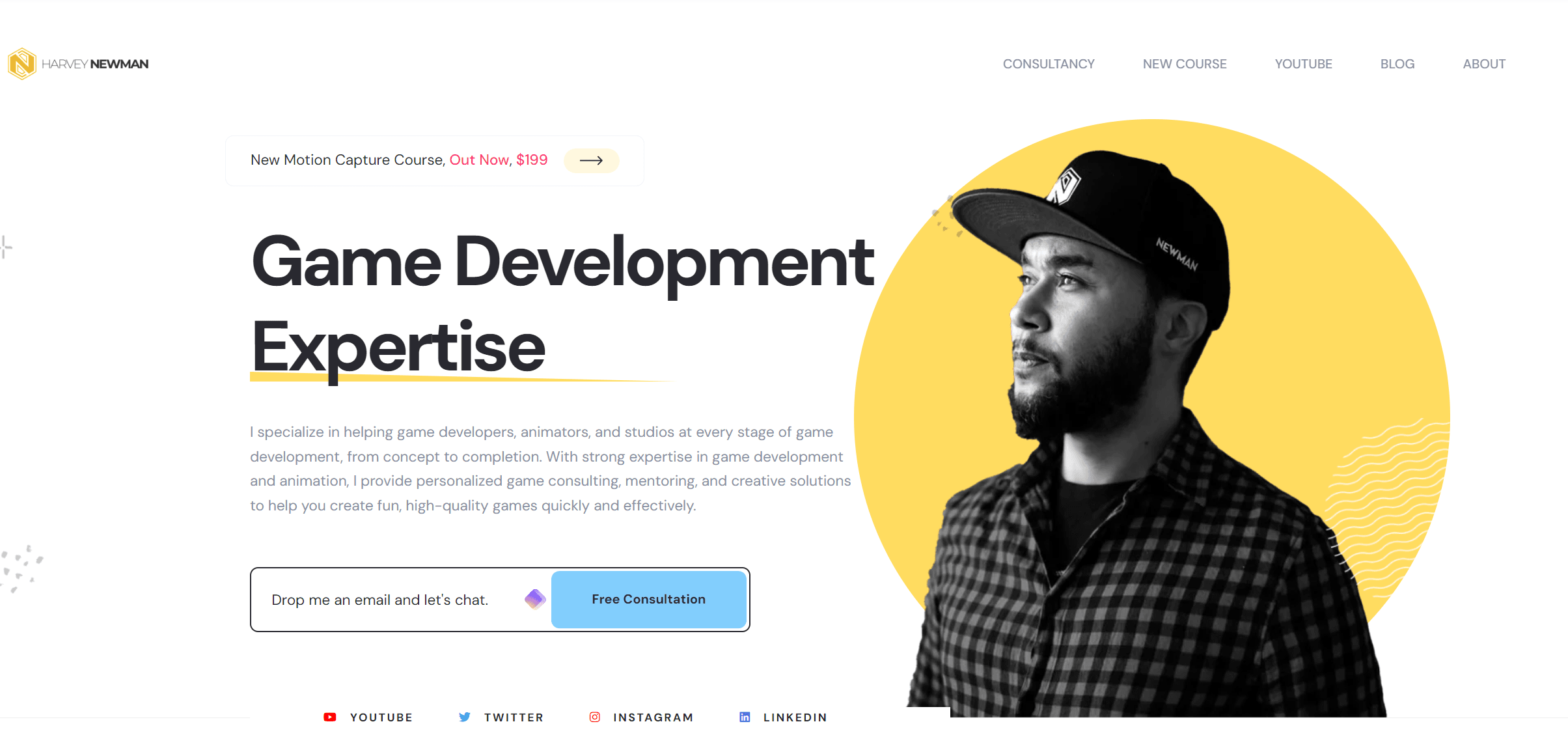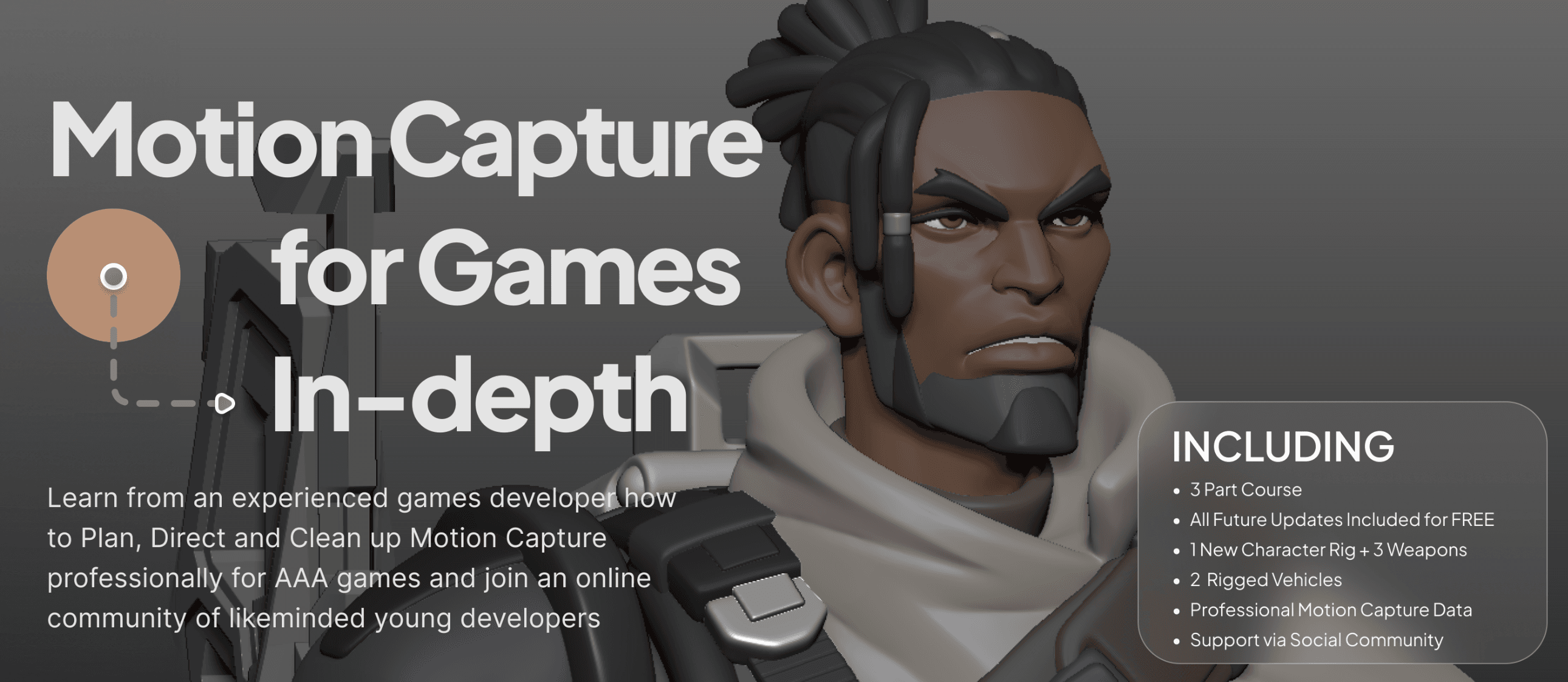
Breaking into the Games Industry in 2024: Essential Tips
How to Break Into Games - 6 Tips for Aspiring Developers
Introduction
Breaking into the games industry can be an exhilarating yet daunting journey. As one of the most dynamic and rapidly evolving sectors, the gaming world offers boundless opportunities for creativity and innovation. Whether you’re an aspiring developer, artist, or marketer, understanding how to navigate this industry is crucial. This guide will take you through essential steps to break into the games industry in 2024, offering insights and practical advice to help you make your mark.

1. Build a Standout Portfolio
Showcase Your Best Work
Your portfolio is your calling card in the gaming industry. It should not just be a collection of your work but a showcase of your best projects that highlight your skills and creativity. Quality always trumps quantity; aim for a few exceptional pieces rather than a large number of mediocre works. Choose projects that demonstrate your technical abilities and your unique artistic style. Each piece should be accompanied by a brief description explaining the project, your role, and the tools you used.
Consider various formats for your portfolio. Visual artists might benefit from a website that showcases images, videos, and even interactive elements, while developers could provide links to playable demos. Ensure that the presentation of your work is clean and professional. A cluttered portfolio can distract potential employers and take focus away from your skills.
Include a Variety of Projects
Diversity in your portfolio can showcase your adaptability and well-rounded skill set. Include a range of projects that demonstrate different aspects of game development, such as level design, character modeling, animation, or coding. This not only illustrates your versatility but also allows you to target specific roles within the industry. For instance, if you are applying for a role in 3D modeling, make sure to feature relevant projects prominently.
Additionally, collaborations can be showcased as they demonstrate your ability to work well within a team, a critical skill in the gaming industry. If you have participated in game jams or community projects, include those experiences. Employers often look for individuals who can contribute collaboratively, so showcasing these projects can set you apart.
Tailor Your Portfolio for Different Roles
Different roles in the gaming industry require different skill sets. If you’re looking to break into game design, highlight your conceptual ideas, documentation, and gameplay mechanics. For programming roles, focus on your coding samples and technical projects. Customizing your portfolio for the specific job you’re applying for shows initiative and understanding of the role’s requirements.
Always keep your target audience in mind. Research the companies you’re applying to and understand their game style and culture. Tailoring your portfolio to meet these expectations can significantly improve your chances of landing an interview.

2. Master Industry Tools
Getting Started with Unreal Engine
Unreal Engine is one of the most powerful game development platforms available. Learning to use Unreal Engine can open many doors in the industry, as many studios rely on it for their projects. Start by familiarizing yourself with the interface and basic functionalities. There are numerous online tutorials and resources available that can help you get a grip on the fundamentals.
Dive into hands-on projects to practice what you’ve learned. Create small games or interactive experiences to solidify your understanding. Experimenting with different features, such as blueprints or level design, can deepen your knowledge and skill set. Join forums and communities focused on Unreal Engine to share your progress and seek feedback.
Diving into Maya
Maya is an industry-standard tool for 3D modeling and animation. If you’re interested in art roles, mastering Maya is crucial. Start with the basics of 3D modeling, texturing, and rigging. Attend workshops or enroll in online courses dedicated to Maya to accelerate your learning curve. Don’t forget to practice regularly; the more time you spend using the software, the more proficient you will become.
Engaging with the 3D modeling community can also provide valuable insights and tips. Websites like ArtStation and CGSociety allow you to showcase your work, receive constructive criticism, and learn from other artists. This not only helps in honing your skills but also in making connections.
Staying Updated with Software Trends
The gaming industry is characterized by rapid technological advancements. Staying updated with the latest software trends is essential for any aspiring game developer or artist. Regularly check industry news, blogs, and forums to keep abreast of new tools and updates. Subscribing to newsletters from industry leaders can provide you with insights into what’s trending.
Consider participating in webinars and online workshops that focus on new software and tools. Continuous learning will not only enhance your skills but also show potential employers that you are proactive about your career development. Being knowledgeable about the latest technologies can give you an edge in interviews.

3. Explore Emerging Technologies
Virtual Reality (VR) Innovations
Virtual Reality is rapidly transforming the way games are developed and experienced. Understanding the principles of VR design can make you a valuable asset in the industry. Start by experimenting with VR development kits, such as Oculus or HTC Vive, to get a feel for creating immersive experiences.
Focusing on user experience in virtual environments is crucial. Study the mechanics of VR gameplay and how to create engaging, interactive worlds. Participating in VR game jams can also provide hands-on experience while allowing you to connect with other developers pushing boundaries in this exciting field.
Augmented Reality (AR) Applications
Augmented Reality is another area of significant growth in the gaming industry. With the widespread use of smartphones, AR games have become incredibly popular. Learning to create AR experiences can greatly enhance your employability. Platforms like ARKit and ARCore provide the necessary tools to get started with AR development.
Experimenting with AR projects can help you understand the unique design challenges this technology presents. Consider following online tutorials and engaging with AR communities to deepen your knowledge. This can also lead to unique project ideas that can set you apart, showcasing your innovative abilities to potential employers.
Artificial Intelligence (AI) in Gaming
Artificial Intelligence is reshaping game design, affecting everything from character behavior to procedural content generation. Familiarizing yourself with AI principles can significantly enhance your skill set. Start by learning about basic algorithms and their applications in gaming, such as pathfinding and decision-making.
Engaging with online courses focused on AI in gaming can provide you with a deeper understanding. Don’t hesitate to explore projects that incorporate AI and demonstrate their potential in your portfolio. Showing that you can integrate AI into your work will make you a valuable candidate for many roles in the industry.
4. Build Your Online Presence
Creating a Professional Website
Your online presence is crucial in today’s digital landscape. A professional website showcasing your portfolio, resume, and contact information allows potential employers to learn more about you. Make sure the design is clean, easy to navigate, and mobile-friendly. A strong online presence can set you apart in a highly competitive field.
Consider adding a blog or articles section where you share your insights about the gaming industry, your learning experiences, or project updates. This not only demonstrates your passion for gaming but also helps in building your personal brand. Regularly updating your content keeps your website fresh and engaging for visitors.
Utilizing Social Media for Networking
Social media platforms like LinkedIn, Twitter, and Instagram can be powerful tools for networking in the gaming industry. Use these platforms to connect with professionals, follow industry leaders, and engage with relevant content. Share your work and insights regularly to build your reputation and visibility.
Engage with the gaming community through discussions, sharing articles, or attending virtual events. Networking can lead to valuable connections that may introduce you to job opportunities or collaborations. Remember, building relationships takes time, so be authentic and proactive in your interactions.
Engaging with Online Communities
Joining online forums and communities related to game development can provide support, feedback, and valuable resources. Sites like Reddit, GameDev.net, and Discord channels dedicated to game development can be great avenues for learning and networking. Participate in discussions, ask questions, and share your knowledge with others.
Consider attending online meetups or workshops hosted by these communities. These events often feature industry professionals who can provide insights into current trends and employment opportunities. Engaging actively can enhance your understanding while expanding your network.
5. Learn Motion Capture Skills
Understanding the Basics of Motion Capture
Motion capture is a critical component of modern game development, particularly in creating realistic animations. Gaining an understanding of how motion capture works can enhance your skill set significantly. Start by researching the technology behind motion capture, including the different types of systems available.
Familiarize yourself with the workflow of capturing movements and translating them into animations. Understanding the process from setup to post-production can provide invaluable insights into the animation pipeline. You may even consider enrolling in courses or attending workshops focused on motion capture technologies.
Practicing with Industry-Standard Equipment
Once you grasp the basics, getting hands-on experience with motion capture equipment is essential. If possible, try to practice in facilities that have industry-standard motion capture gear. Understanding how to set up cameras, markers, and software will prepare you for real-world applications.
Engaging in projects that incorporate motion capture can also provide practical experience. Collaborate with fellow students or peers to create short animations utilizing motion capture data. This not only helps you refine your skills but also adds impressive projects to your portfolio.
Integrating Motion Capture into Your Projects
As you gain experience, look for ways to integrate motion capture into your game projects. Experiment with different styles and techniques to see how they affect the final product. Including motion capture in your portfolio can demonstrate your technical ability and creativity, making you a more attractive candidate to employers.
Additionally, consider documenting your process. Creating breakdowns of how you used motion capture in your projects can showcase your thought process and problem-solving skills, adding depth to your portfolio.
If you’re serious about building a career in game animation, this course could be your game-changer. Check it out here.
6. Keep Learning and Adapting
Staying Current with Industry Changes
The gaming industry is always evolving, with new technologies and trends emerging regularly. Staying informed about these changes is crucial for your career development. Subscribe to industry newsletters, follow gaming blogs, and read books on game development. Understanding the direction the industry is heading can help you stay relevant and competitive.
Regularly attending conferences or online events can also provide insights into the latest technologies and practices. Networking at these events can lead to mentorship opportunities and collaborations that enrich your learning experience. The more you engage with the industry, the better prepared you will be for future challenges.
Participating in Workshops and Online Courses
Consider investing time in workshops and online courses that focus on specific skills or technologies. Platforms like Coursera, Udemy, and Skillshare offer courses on various aspects of game development, from programming to art. Continuous learning can enhance your skill set and show potential employers that you are committed to growth.
Many industry professionals and studios also host workshops focused on current trends and technologies. Participating in these can provide hands-on experience and insights directly from the experts. Always be on the lookout for opportunities that can offer valuable learning experiences.
Reading Industry Blogs and Publications
Staying informed through industry blogs and publications can provide valuable insights into trends, technologies, and best practices. Follow reputable sources to ensure you are getting accurate and relevant information. Reading case studies of successful projects can also inspire and inform your own work.
Consider setting aside dedicated time each week to catch up on industry reading. Engaging with the content and reflecting on how it relates to your work can enhance your understanding and inform your development process.
Conclusion
Breaking into the games industry in 2024 requires dedication, creativity, and a willingness to learn. By building a standout portfolio, mastering industry tools, exploring emerging technologies, and building a strong online presence, you can position yourself as a valuable candidate in this competitive field. Continuous learning and engagement with the community will keep your skills sharp and your network strong.
FAQs
What are the essential skills needed to enter the games industry?
Essential skills include proficiency in industry-standard software, understanding of game design principles, programming knowledge, and creativity. Depending on your desired role, other specific skills may also be necessary.
How important is networking in the games industry?
Networking is incredibly important in the games industry. Building relationships can lead to job opportunities, collaborations, and mentorship, making it easier to break into the field.
What should I include in my game development portfolio?
Your portfolio should include your best work, showcasing a variety of projects that demonstrate your skills. Tailor it for specific roles, including detailed descriptions of your projects and your contributions.
Are there any online resources for learning game development?
Yes, there are numerous online resources available, including platforms like Coursera, Udemy, and YouTube. Industry-specific forums and communities also offer tutorials and advice.
How can I stay updated with industry trends?
Subscribe to industry newsletters, follow gaming blogs, and participate in online communities. Attending conventions and networking events also helps you stay informed on the latest trends.








